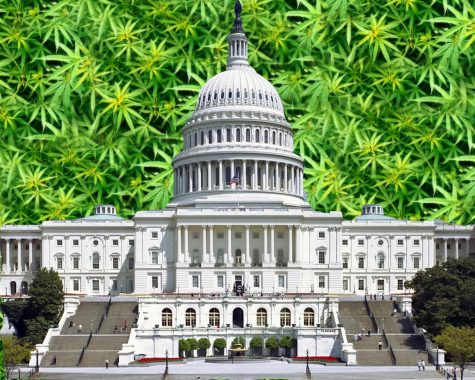Ex-Rep. Rohrabacher says that the U.S. federal government is focused on legalizing cannabis
The former American politician thinks that federal restrictions on cannabis will be lifted as soon as next year

It’s only a matter of time before cannabis becomes legal at the federal level in the United States.
Congress has been weighing up the pros and cons of legalization for quite some time now and former Republican Congressman Dana Rohrabacher thinks 2020 could be the year of legal weed in the U.S. Rohrabacher, who is an active cannabis investor from Southern California, says that President Donald Trump will play a major role in legalizing the plant at a governmental level.
“We had almost no leadership during the Obama administration,” he recently said during an interview with CannabisNow. “I was expecting after we passed the original Rohrabacher-Farr amendment that, because I was just dealing with Democrats inside the Obama administration, we’d be making a lot of progress. And we did not.”
Who is Rohrabacher and what has he done to speed up cannabis reform in the U.S.?
As an American politician who devoted 20 years to congressional duties, Rohrabacher knows what he’s talking about. Plus, with many of his former colleagues still working on Capitol Hill, he certainly has an insider’s perspective on the subject of cannabis legalization in the U.S. The 71-year-old pro-cannabis politician left Congress last year after serving 15 terms in the House.
Back in 1989, Rohrabacher first assumed his position in the U.S. House of Representatives. Although his 20-year stint came to an end this year, he’s not exactly disappeared from the scene; most certainly not the cannabis scene. Last month, he took to Twitter to announce that he had become an advisory board member and shareholder of BudTrader, which describes itself as “the world’s largest 420 advertising, networking and social media platform.”
Co-founder of the Congressional Cannabis Caucus, Rohrabacher has indicated his support for cannabis reform on more than one occasion. During his term, he curated a great deal of important cannabis-related language in Congress. An example was the Rohrabacher-Farr amendment, which prevented the Justice Department from using money to delay the rollout of statewide medical cannabis laws.
He thinks the chances of cannabis reform materializing are better if former anti-cannabis Vice President Joe Biden doesn’t become the next Democratic candidate.
“By the time we have a presidential election, there will be some more activity on it and the president will be on our side,” Rohrabacher said. “Which will help out tremendously, especially if Biden is the Democratic nominee.”
Pot prohibition in the U.S. stems from the 1930s
Cannabis consumption and possession is against federal law in the United States, no matter what the purpose of using and/or possessing it might be. This is according to the Controlled Substances Act of 1970, which Rohrabacher thinks will be amended by 2020.
Prohibition could have done more harm than good, it seems. Amidst the “reefer madness” that ensued in the late 1930s, harsh restrictions on cannabis use and possession in the U.S. emerged. The federal government’s choice to impose harsh laws triggered a spike in illicitly operating drug gangs, cartels, and traffickers. In turn, this caused violence, unnecessary deaths, and an unregulated economy.
Now, with America’s northern neighbor Canada recently legalizing cannabis – the Cannabis Act (also known as Bill C-45) was approved on October of 2018 – and overseas markets beginning to blossom, Rohrabacher sees things changing drastically next year. Now that former Attorney General and pot prohibitionist Jeff Sessions is out of the picture, Rohrabacher thinks that federal restrictions on cannabis will be lifted as soon as next year.
“His [Sessions’s] presence became a real drag on everything,” Rohrabacher said. “But as I said, I think President Trump has made it real clear he’s on our side. Whether people use medical [cannabis]… whether personal use by adults should be left up to the states.”
He hopes to convince Trump in the coming months to come out with a strong pro-cannabis legalization position.








